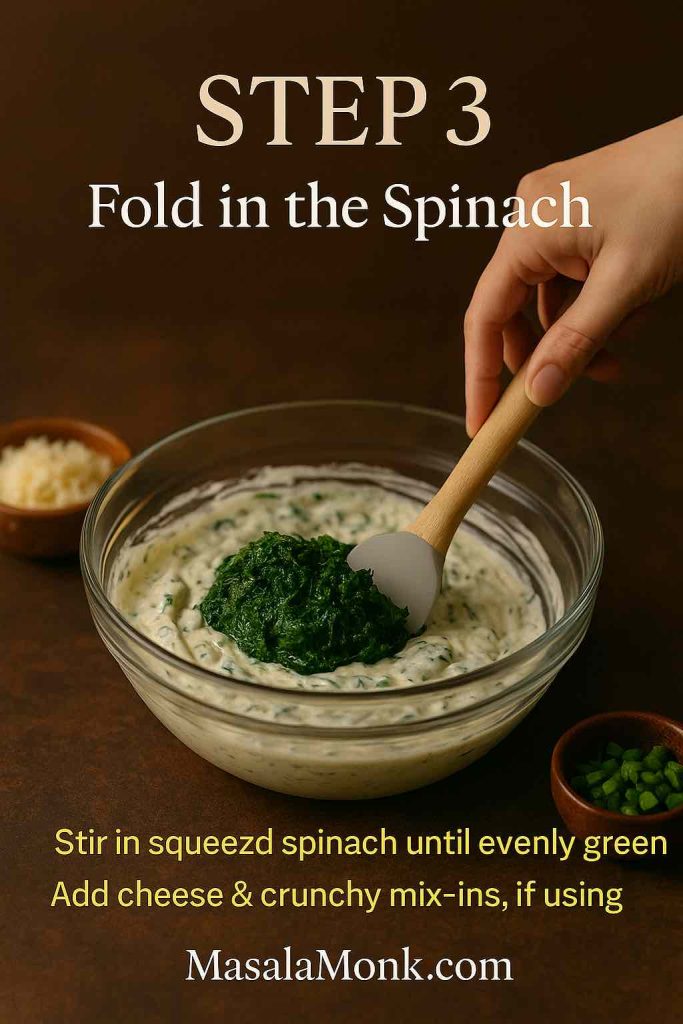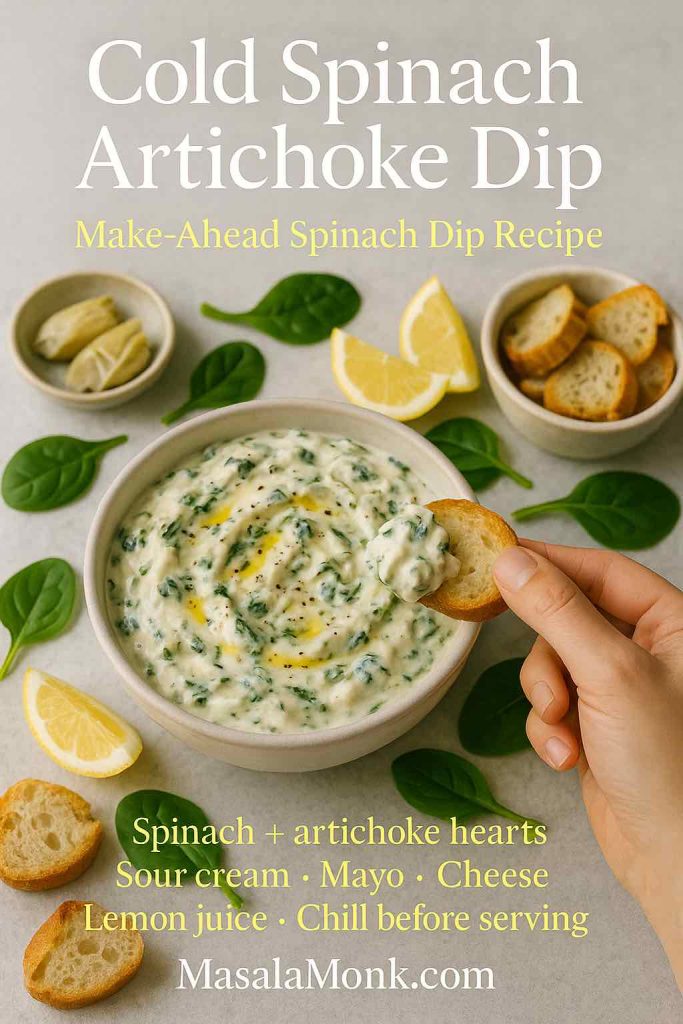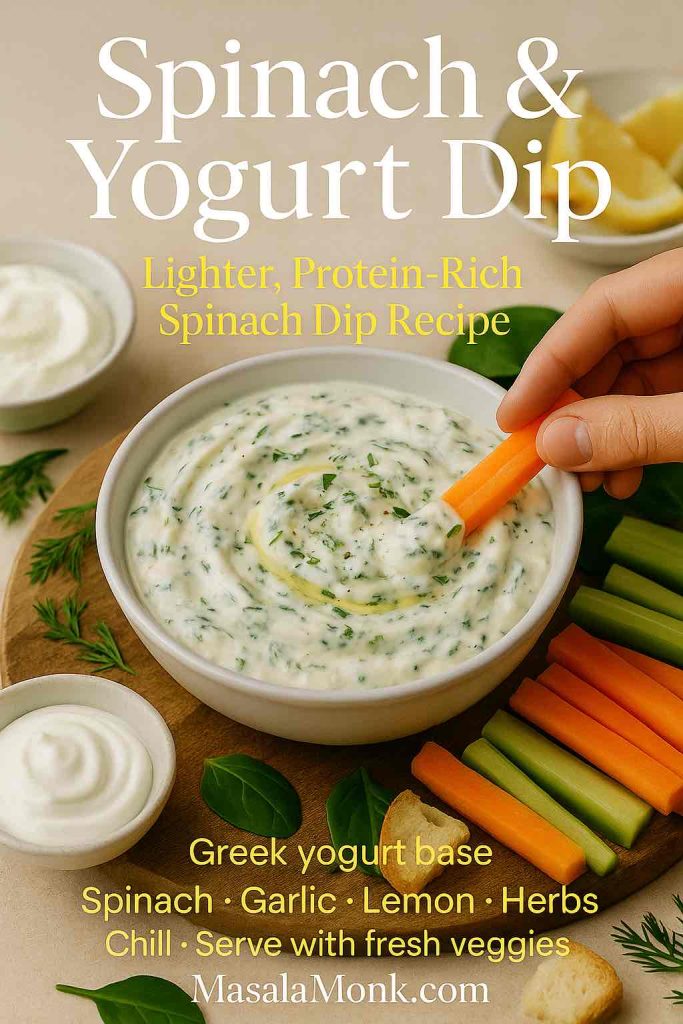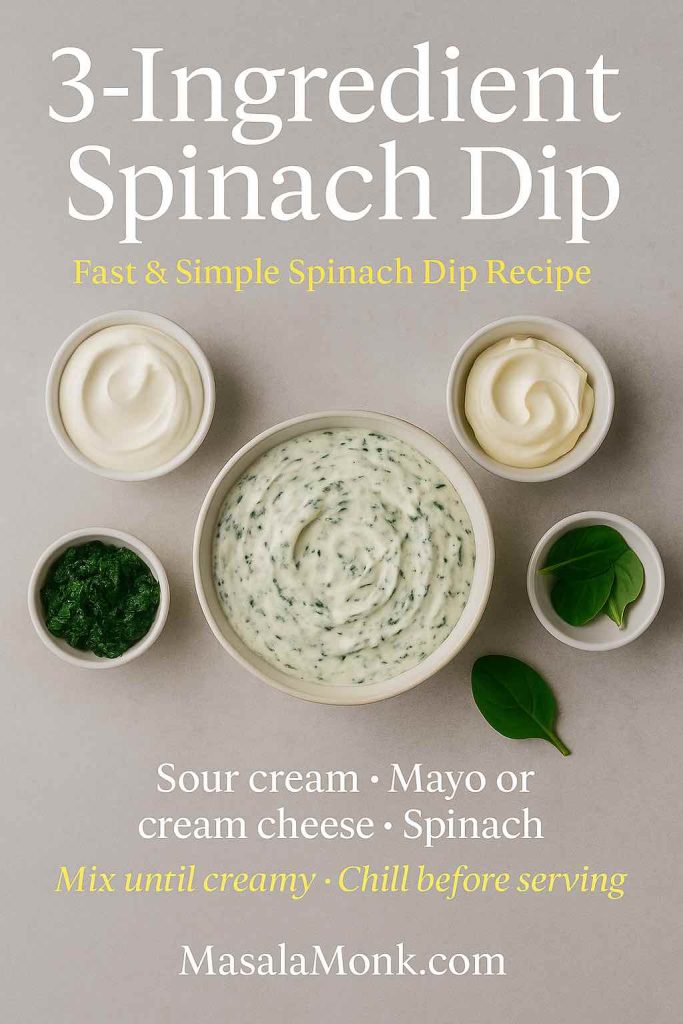
There are some recipes people like, and then there are recipes people hover around. This creamy buffalo chicken wing dip definitely belongs in the second group. It has everything you love about hot wings—heat, tang, salty richness—folded into a scoopable, shareable spread that works for game days, house parties, holiday evenings or the most low-key movie night.
Once you understand the basic structure of this hot wing chicken dip, you can twist it into a baked version, a crockpot buffalo-style chicken dip, a quick skillet batch, high-protein or low-carb options, and even vegetarian or vegan “buffalo chicken” style dips. You can then build a whole menu around it, with wings, jalapeño poppers, creamy side dishes, and even a couple of cocktails to cut through all that glorious richness.
Why This Creamy Wing Dip Works So Well
Every good buffalo-style chicken dip—no matter how fancy it looks in the photo—comes down to a few simple ideas:
- Shredded chicken for texture and savoriness
Tender chicken brings the “wing” part of the flavor. When you shred it finely, each bite of dip feels meaty without being chunky or awkward to scoop. - A smooth, tangy base
Cream cheese, sour cream or yogurt and a little creamy dressing (usually ranch or blue cheese) give the dip its body. This mixture softens the heat, spreads the flavor and makes the whole thing feel luxurious. - Buffalo-style hot sauce for fire and acidity
A generous amount of hot sauce delivers that familiar wing flavor. The trick is balancing it with the creamy base so the dip stays bold but still pleasant to eat by the spoonful. - Melty cheese for comfort
A handful of shredded cheese melts through the mixture, giving the wing dip extra body and those stretchy strings everyone secretly chases with their chips.
When you keep these four pillars in mind—chicken, creamy base, buffalo-style sauce, and cheese—you can replace individual components and still end up with something delicious. That’s why one basic buffalo chicken wing dip recipe can morph into dozens of variations without ever feeling repetitive.
Also Read: Simple Bloody Mary Recipe – Classic, Bloody Maria, Virgin & More
Core Ingredients for Buffalo Chicken Dip
To give you a solid starting point, here’s a flexible list you can reuse across several methods: baked, slow cooker, stovetop, and more.
Choosing the chicken
You can use almost any cooked chicken:
- Leftover roast or grilled chicken
- Poached chicken breasts or thighs
- Rotisserie chicken from the store
- Even canned chicken in a pinch
For a party-sized batch of buffalo style chicken dip, aim for 2 cups (250–300 g) of shredded chicken. Finely shredded meat blends into the creamy base much more easily than large chunks, so it is worth taking an extra minute with your forks.
Building the creamy base
A reliable base ratio looks like this:
- 225 g cream cheese, softened
- ½ cup thick plain yogurt or sour cream
- ½ cup ranch or blue cheese dressing
This gives you a mixture that’s rich, tangy and thick enough to feel substantial, yet still soft enough to scoop. Yogurt brings a little extra protein and a more pronounced tang, while sour cream gives a slightly silkier feel.
If you like to keep an eye on nutrition, it helps to know that plain Greek yogurt tends to be lower in fat and calories but higher in protein than sour cream, as shown in comparisons that use USDA data.(foodess.com) That makes it a handy ingredient when you want your hot chicken dip to be a bit lighter but still creamy.
Hot sauce and cheese
For that signature buffalo wing taste:
- ½ cup buffalo-style hot sauce, or to taste
- 1 cup shredded cheese (cheddar, mozzarella, Colby Jack or a blend)
The hot sauce brings heat and acidity; the cheese melts through and anchors everything. A small pinch of garlic powder and onion powder (about ¼ teaspoon each) rounds out the flavor and pushes the dip closer to what you’d get at a pub or sports bar.
Also Read: Tres Leches – Mexican 3 Milk Cake Recipe
Oven-Baked Buffalo Style Chicken Dip
The most straightforward way to make this dish is in the oven. Baked buffalo style chicken dip comes out bubbling around the edges with a lightly bronzed top, and it feels slightly more special than a dip made in the microwave.

Step-by-step baked buffalo chicken wing dip
Ingredients
- 2 cups cooked shredded chicken
- 225 g cream cheese, softened
- ½ cup plain yogurt or sour cream
- ½ cup ranch or blue cheese dressing
- ½ cup buffalo-style hot sauce
- 1 cup shredded cheese (plus extra for topping)
- 2 tbsp chopped spring onion or chives (optional)
- ¼ tsp garlic powder
- ¼ tsp onion powder
- Salt and pepper
1. Preheat and prep
First, preheat your oven to 180°C / 350°F. Lightly grease an 8×8 inch (20×20 cm) baking dish or a similar small casserole. A shallow dish gives you more golden top; a deeper one gives you a softer center.

2. Mix the creamy buffalo base
Next, combine the softened cream cheese, yogurt or sour cream, ranch or blue cheese dressing, hot sauce, garlic powder and onion powder in a bowl. Whisk until the mixture is completely smooth.
At this stage, take a little taste:
- If it feels too mellow, add another splash of hot sauce.
- If it tastes sharper than you’d like, stir in a spoonful of cream cheese or yogurt.
- If it seems flat, a pinch of salt helps other flavors pop.
Recipes like the oven-baked buffalo chicken dip at Taste of Home follow almost exactly this pattern: a short list of creamy ingredients plus hot sauce, chicken and cheese, baked until hot and bubbly.

3. Fold in chicken and cheese
Then, add the shredded chicken, ¾ of your shredded cheese and the chopped herbs. Stir until the chicken is fully coated and you don’t see any dry pockets.
The mixture should be thick but spreadable. If it feels overly stiff, another spoonful of dressing or yogurt will loosen it.

4. Bake until bubbling
Spread the mixture evenly in your prepared baking dish. Sprinkle the remaining cheese over the top.
Bake for 20–25 minutes, or until:
- The edges are bubbling
- The cheese topping has melted and turned golden in places
If you love a browned crust, you can finish the dish under a hot grill or broiler for 2–3 minutes, keeping a close eye so the cheese doesn’t burn.

5. Rest and serve
Finally, let the baked chicken wing dip rest for about 5–10 minutes. During this pause, it thickens slightly and becomes easier to scoop.
Scatter extra herbs or a handful of crumbled blue cheese over the top if you like. Then carry it straight to the table with vegetables, crackers and bread.
A second, milder dip—perhaps one from the spinach dip recipes collection—looks beautiful next to this fiery, cheesy dish and gives your guests another flavor to explore.

Make-ahead tips for baked buffalo chicken wing dip
You can assemble this oven-baked buffalo chicken wing dip a day ahead:
- Mix the base, chicken and cheese.
- Spread it in the dish, cover tightly and refrigerate.
- When you’re ready to serve, uncover, add the final layer of cheese and bake.
Because the mixture starts cold, it may need an extra 5–10 minutes in the oven. Check that the center is hot and the edges are bubbling before you bring it out.
Also Read: How to Cook Perfect Rice Every Time (Recipe)
Slow Cooker Buffalo Chicken Wing Dip for Parties
When you’re planning a game day or a long evening with friends, a slow cooker version—often called buffalo wing dip or buffalo style chicken dip in the slow cooker—is incredibly practical. You can prep everything earlier, then simply let the crockpot keep it warm while people graze.
There are two main approaches:
- Using chicken that is already cooked and shredded.
- Starting with raw chicken breasts, which cook in the slow cooker before becoming dip.
Crockpot buffalo wing dip with cooked chicken
For this crockpot method, use the same ingredient list as the baked version.
1. Load the slow cooker
Place the cream cheese (cut into cubes), yogurt or sour cream, ranch or blue cheese dressing, hot sauce, chicken, shredded cheese and seasonings into the slow cooker. Stir them together roughly.
2. Cook on LOW
Cover the crockpot and cook on LOW for about 2–3 hours, stirring once or twice. The aim is to gently melt the cheese and cream cheese until you have a smooth, hot wing dip.
3. Keep warm
Once the mixture is fully melted and bubbling around the edges, switch the slow cooker to WARM. This keeps the dip scoopable for hours without scorching it.

Many popular recipes follow this rhythm almost exactly, such as slow cooker buffalo chicken dips from Allrecipes and Taste of Home that layer chicken, hot sauce, cheese and dressing, then cook on LOW before switching to WARM for serving.
Slow cooker method with raw chicken
If you prefer to start with raw chicken, you can do that as well:
- Place 2 small chicken breasts into the bottom of the slow cooker.
- Pour over your hot sauce, dressing and a splash of water or stock.
- Cook on LOW for 3–4 hours, until the chicken is tender.
- Shred the chicken directly in the pot using two forks or a hand mixer.
- Add cream cheese, yogurt or sour cream and shredded cheese. Stir to combine.
- Cook on LOW for another 30–45 minutes, then switch to WARM.
This approach is especially handy if you’re starting from frozen or raw meat and don’t want to dirty any extra pans.
Also Read: Crock Pot Lasagna Soup (Easy Base + Cozy Slow-Cooker Recipes)
Quick Stovetop and Skillet Buffalo Chicken Wing Dip
Sometimes turning on the oven or hauling out the slow cooker feels like too much. On a hot afternoon or in a tiny kitchen, a stovetop buffalo-style chicken dip is just easier.

Simple skillet method
- In a large skillet, gently heat the cream cheese, yogurt or sour cream, hot sauce and dressing over low to medium-low heat.
- Stir constantly until the mixture becomes smooth and creamy.
- Add the shredded chicken, cheese and seasonings.
- Continue to cook, stirring, until the cheese melts and the dip is piping hot.
- If your skillet is oven-safe, you can sprinkle extra cheese on top and slide it under the grill or broiler for a couple of minutes for a lightly browned finish.
Skillet versions often show up in slow-cooker recipes too; for instance, some Allrecipes methods start with a creamy mixture on the stove before moving to the slow cooker.(Allrecipes) In everyday life, though, you can simply stop once the dip is melted and serve it straight from the pan.
Also Read: High Protein Overnight Oats | 5 Recipes (Low Calorie, Vegan, Bulking & More)
Using Canned or Rotisserie Chicken
Realistically, you won’t always have perfectly poached or roasted chicken waiting in the fridge. Fortunately, this spicy chicken dip is very forgiving.
Canned chicken for speed
Canned chicken makes a surprisingly good base for buffalo style chicken dip when you’re short on time:
- Use two 170 g (6 oz) cans, drained well.
- Flake the meat with a fork to remove clumps.
- Stir it into your creamy buffalo base just as you would fresh chicken.
Because canned chicken is lean and a bit drier, you might want to:
- Add a spoonful or two of extra yogurt or dressing.
- Increase the cheese slightly for more richness.
Recipes like Allrecipes’ baked buffalo dip with canned chicken use exactly this trick to turn pantry items into a party-ready hot dip with minimal effort.
Rotisserie chicken for extra flavor
Rotisserie chicken is ideal when you want the wing dip to feel extra luxurious with minimal extra work:
- Pull the meat off the bones while it is still slightly warm.
- Shred it finely, chopping any very large pieces.
- Avoid large skin or cartilage pieces, though a little chopped crispy skin can add delicious flavor.
With rotisserie chicken, the rest of the recipe stays exactly the same, but the taste becomes deeper and more complex. That makes this approach wonderful for holidays or any time you want your buffalo style chicken dip to feel a notch above the usual.
Also Read: Homemade Hot Chocolate with Cocoa Powder Recipe
Lighter, High-Protein and Low-Carb Variations
A classic buffalo chicken wing dip is undeniably indulgent. Even so, you can nudge it toward healthier territory without sacrificing the flavors you love.
Greek yogurt hot wing dip
For a lighter yet creamy chicken wing dip, Greek yogurt is a star:
- Use ½ block cream cheese instead of a full block.
- Increase Greek yogurt to ¾–1 cup.
- Keep hot sauce and cheese the same.

Because Greek yogurt is typically lower in fat and higher in protein than sour cream, according to nutrition comparisons based on USDA data, it turns this into more of a high-protein buffalo chicken dip without feeling “diet” in the slightest.(foodess.com)
When you taste the mixture, you may find it a little tangier than the original. In that case, an extra tablespoon of cream cheese or a tiny drizzle of honey can round out the flavor.
Cottage cheese for a protein boost
For a really protein-dense spicy chicken dip:
- Blend 1 cup cottage cheese until completely smooth.
- Use that in place of half the cream cheese and half the yogurt or sour cream.
- Season generously with salt, pepper, garlic powder and extra hot sauce to keep the flavor bold.
This style of hot chicken dip is ideal when you want something that feels like a treat but works within a higher-protein eating plan.

Lower-carb, keto-friendly chicken wing dip
Because the base ingredients are mostly meat, cheese and dairy, this hot wing chicken dip is already relatively low in carbohydrates. To keep it firmly in low-carb or keto territory:
- Choose full-fat cream cheese, yogurt or sour cream and cheese.
- Avoid any sweet sauces or sugary dressings.
- Serve with low-carb dippers such as:
- Celery sticks
- Cucumber slices
- Bell pepper strips
- Lightly steamed broccoli florets

Meanwhile, guests who aren’t counting carbs can happily spoon their portion next to something extra cosy, like a bowl of creamy macaroni and cheese that covers stovetop, baked and Southern-style versions.
Vegetarian and Vegan Buffalo-Style Dip
Not everyone at the table eats meat or dairy, but that doesn’t mean they should miss the fun. You can borrow the same buffalo wing flavors and package them into vegetarian and vegan versions.
Meat-free buffalo ranch dip
For a vegetarian take:
- Replace shredded chicken with roasted cauliflower florets, chopped into bite-sized pieces.
- Or sauté a mix of white beans and finely chopped mushrooms until golden and fold them into the creamy base.

The result is a hearty, buffalo ranch dip that’s full of texture and spice but completely meat-free. It also sits nicely alongside actual wings, so vegetarians and omnivores can share the table without anyone feeling left out.
Dairy-free and vegan version
To go fully plant-based:
- Swap cream cheese for a thick vegan cream cheese or blended cashew cream.
- Use unsweetened plant yogurt instead of dairy yogurt or sour cream.
- Choose a vegan cheese that melts well.
- Stir in roasted cauliflower or soy-based “chicken” strips.
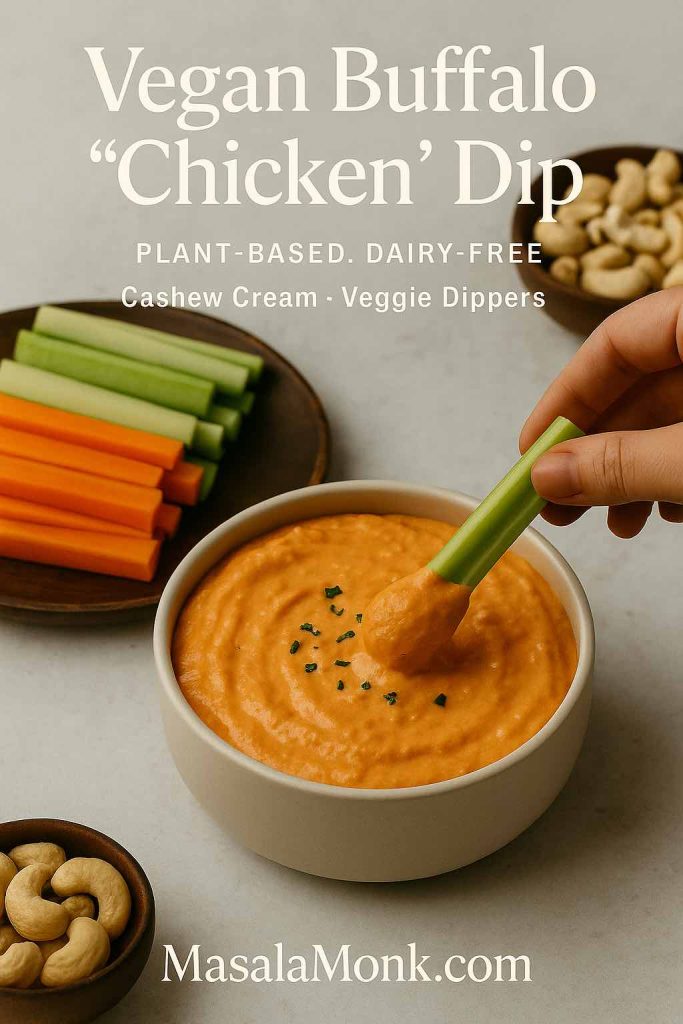
Bake it just as you would the classic buffalo-style chicken dip, keeping an eye on how your plant-based cheese behaves. After one or two tries, you’ll know exactly how long it needs for a perfectly melty texture.
Also Read: Peanut Butter Cookies (Classic Recipe & 3 Variations)
What to Serve with Spicy Chicken Dip
A good hot wing chicken dip needs the right cast of supporting characters. With a few well-chosen sides and dippers, you can turn one bubbling dish into a whole buffet.
Classic dippers and fresh crunch
Start with a mix of crisp and neutral options:
- Celery and carrot sticks
- Cucumber rounds
- Simple crackers
- Pita triangles or toasted baguette slices
- Soft bread cubes
The vegetables bring freshness and crunch, while the breads and crackers offer a mild base for that bold buffalo flavor.
Wings, poppers and creamy sides
To lean fully into a game-day vibe, build a spread around the dip:
- Crispy chicken wings
A batch of air fryer chicken wings gives you crunchy, shatteringly crisp wings without deep-frying, which pair naturally with any buffalo-inspired dish. - Baked jalapeño poppers
A tray of baked jalapeño poppers echoes the spicy, cheesy theme and disappears just as fast as the dip itself. - A second creamy dip
For guests who prefer milder flavors, something from the spinach dip recipes collection works beautifully—especially a cool spinach artichoke dip or yogurt-based variation. - Comforting vegetable side
During the holidays, green bean casserole recipe ideas make a cosy partner for this spicy, cheesy dish. - Potato bites and other nibbles
Air-fried potatoes are a natural match. Chilli garlic potato bites bring crunch, spice and a bit of smoky flavor without deep-frying, and they’re perfect for scooping up the dip.
Cool dips and drinks to tame the heat
Rich, spicy food almost always tastes better with something bright or cooling alongside it:
- A big bowl of blue cheese dip from the blue cheese dip for wings guide gives people a way to mix tangy and spicy flavors.
- A chilled platter of chopped vegetables with a simple yogurt ranch dressing offers a refreshing break from all the cheese.
For drinks, bubbles and citrus cut through the richness beautifully:
- A batch of cocktails from the French 75 cocktail recipe post—gin, lemon and sparkling wine—feel festive but still sharp and refreshing.
- Meanwhile, the creative gin cocktail recipes guide offers pineapple, lychee, coffee and other twists that hold up well against strong savory flavors.
Naturally, you can offer non-alcoholic options alongside these: sparkling water with lemon, iced tea or citrusy sodas all make sense next to a tray of hot wings and dips.
Storing, Reheating and Food Safety
Whenever you make a creamy buffalo-style chicken dip, it helps to treat it like any other dish containing cooked meat and dairy.
How long can spicy chicken dip sit out?
Food safety guidance from organizations such as the USDA and FoodSafety.gov generally recommends that perishable foods, including leftovers with meat and dairy, should not sit at room temperature for more than about two hours, or just one hour if the room is very hot.(Food Safety and Inspection Service) After that, bacteria can multiply quickly.
Practically speaking, that means:
- If your dip is in a slow cooker on WARM, you can leave it out for the duration of a normal gathering.
- If it is in a regular dish and has cooled down on the table for a couple of hours, it’s better to wrap it, chill it promptly, and then reheat portions later rather than letting it sit all evening.
Storing and reheating leftovers
To store leftovers:
- Transfer any remaining dip to shallow, airtight containers.
- Allow it to cool slightly on the counter, but move it to the fridge within that 2-hour window.
- Keep it chilled and aim to eat it within 3–4 days, as suggested in general leftover guidelines.(Food Safety and Inspection Service)
To reheat, you can:
- Warm small portions in the microwave, stirring between bursts.
- Reheat larger amounts in a small baking dish at 160–175°C / 325–350°F until hot and bubbling.
- Gently melt it in a saucepan over low heat, adding a spoonful of yogurt or milk if it seems too thick.
Once leftovers have been reheated, it is safest to eat them right away and avoid reheating the same portion multiple times.
Also Read: How to Make Churros (Authentic + Easy Recipe)
Leftover Ideas: Sandwiches, Stuffed Potatoes and More
When you’ve made a generous batch, leftovers of this buffalo style chicken dip turn into a secret stash of ready-to-go, seasoned chicken filling. Instead of spooning it back into a bowl, you can transform it into new dishes with very little extra work.

Spicy chicken sandwiches and sliders
Warm the leftover dip until soft and spreadable, then pile it onto toasted buns:
- Add crisp lettuce and slices of tomato for freshness.
- Layer in pickles, sliced onion or shredded cabbage for crunch.
- Drizzle a little extra ranch or blue cheese dressing if you’d like things saucier.
For more ideas on toppings, breads and flavor combinations, you can borrow structures from the chicken sandwich recipes guide, which includes buffalo, BBQ and other styles.
Loaded baked potatoes
A few spoonfuls of leftover spicy chicken ranch dip are fantastic in baked potatoes:
- Bake potatoes until tender inside and crisp outside.
- Split and fluff the insides with a fork.
- Stir in warm dip and a little extra cheese.
- Return them to the oven or under the grill until the tops bubble and brown.
Top with chopped spring onions, jalapeño slices or even a dollop of yogurt for a complete meal.
Quesadillas and wraps
Spread leftover wing dip across a tortilla, sprinkle with a bit more cheese and top with another tortilla. Toast it in a skillet until crisp on both sides and slice into wedges. Serve with carrot sticks, celery and extra hot sauce.
Alternatively, spoon the heated dip into soft tortillas with shredded lettuce, cucumber and tomatoes, then roll into wraps for an easy lunch.
Buffalo mac and cheese mash-up
For the ultimate comfort combo, swirl warm dip through a bowl of creamy macaroni and cheese. The result is a mash-up that tastes like pub food in the best way—rich, cheesy pasta with pockets of spicy chicken running through it.
Build a Full Game-Day Spread Around Wing Dip
Once you’ve cooked this creamy wing dip a couple of times, it starts to feel natural to build entire menus around it. A simple, satisfying spread might look like this:
- Centerpiece:
A big baking dish of hot buffalo style chicken dip or a slow cooker kept on WARM. - Wing station:
A platter of crisp air fryer chicken wings with extra hot sauce and a bowl of cooling blue cheese dip from the blue cheese dip for wings guide. - Dip duo:
One spicy buffalo-style cheese dip and one milder option from the spinach dip recipes article—cold spinach dip or spinach artichoke, for example. - Finger food:
A tray of baked jalapeño poppers plus a bowl of chilli garlic potato bites to keep hands busy between trips to the dip. - Comforting side dish:
A bubbling pan of green bean casserole recipe ideas for anyone craving something nostalgic and cosy. - Drinks station:
A chilled jug of something bright and fizzy based on the French 75 cocktail recipe, alongside one or two options from the creative gin cocktail recipes guide, plus plenty of non-alcoholic choices.
With a layout like that, people can move around the table, build plates that suit their mood and come back to the creamy wing dip whenever they like. It becomes the friendly constant in the middle of everything else.
A Simple Hot Wing Dip Formula You Can Adapt Forever
Underneath all the variations—baked, slow cooker, skillet, high-protein, keto, vegetarian or extra-rich—the structure of this buffalo style chicken dip stays the same:
Cooked chicken + creamy base + buffalo-style hot sauce + cheese
Once you remember that formula, you’re free to improvise:
- Swap canned chicken, rotisserie chicken or leftover roast.
- Adjust the base with more Greek yogurt, a little cottage cheese or extra cream cheese.
- Choose cheddar for a sharper bite, mozzarella for extra stretch or a blend for balance.
- Dial the heat up or down according to the crowd.
- Fold the dip into sandwiches, wraps, potatoes and pasta when you have leftovers.
After a few rounds, you won’t really need to check measurements anymore. You’ll glance into your fridge, see chicken, hot sauce, a block of cream cheese and some shredded cheese, and know exactly what to do.
That’s when this creamy buffalo chicken wing dip—whatever version you land on—stops being just another recipe and quietly becomes your signature party dish.
Also Read: Béchamel Sauce for Lasagna: Classic, Vegan & Ricotta Sauce Recipe
FAQs about Buffalo Chicken Dip
1. Can I make buffalo chicken dip ahead of time?
Absolutely. Firstly, you can assemble the entire spicy chicken dip up to a day in advance. Mix the cooked chicken, creamy base, hot sauce, and cheese, then spread it in your baking dish, cover tightly, and refrigerate. When you’re ready to serve, uncover it, add the final layer of cheese, and bake until hot and bubbling. As a result, you get the ease of a make-ahead recipe with the taste and texture of a freshly baked buffalo wing dip. Just remember it may need a few extra minutes in the oven because it starts cold from the fridge.
2. Can I use canned chicken in this chicken wing dip?
Yes, you can. To begin with, canned chicken is a brilliant shortcut when you want a quick buffalo chicken dip recipe with minimal prep. Drain the cans very well, then flake the meat with a fork so there are no large clumps. After that, stir it into your creamy buffalo mixture just as you would shredded roast or rotisserie chicken. The flavor will still be rich and tangy, especially once it bakes with hot sauce and cheese. If it seems a bit dry, simply add a spoonful of extra yogurt, sour cream, or dressing to loosen the dip.
3. How do I make buffalo chicken dip with rotisserie chicken?
Rotisserie chicken works beautifully here. First, strip the meat from the bones while it’s still slightly warm; this makes shredding easier. Next, chop or shred the meat into small pieces so it blends evenly into the buffalo ranch chicken dip. You can use a mix of breast and thigh for the best flavor. Then, fold the shredded chicken into your creamy base and cook using your favorite method—baked, slow cooker, or stovetop. Because rotisserie meat already has plenty of seasoning, the final chicken wing dip tends to taste extra savory and satisfying.
4. What’s the best way to make buffalo chicken wing dip in a slow cooker?
For a crock pot version, start by adding cream cheese, yogurt or sour cream, ranch or blue cheese dressing, hot sauce, shredded chicken, and cheese to the slow cooker. Then, stir everything roughly to combine. Cook the dip on LOW for about 2–3 hours, stirring once or twice, until it’s smooth and melted. Afterwards, switch the setting to WARM so your buffalo style chicken dip stays hot and scoopable for the whole party. If you’re starting with raw chicken breasts, cook them first with the sauce on LOW until tender, shred the meat in the pot, and then add the remaining ingredients.
5. Can I make Instant Pot buffalo chicken dip?
Definitely. Initially, place chicken breasts, hot sauce, a splash of water or stock, and a bit of dressing in the Instant Pot. Pressure cook on HIGH for a short cycle (often around 10 minutes, depending on thickness) and allow a brief natural release. Once you open the pot, shred the chicken directly inside using forks or a mixer. After that, stir in cream cheese, yogurt or sour cream, dressing, and shredded cheese. Finally, use the sauté function on LOW to melt everything together into a creamy, spicy chicken dip. Keep stirring so the bottom doesn’t scorch.
6. How can I make this spicy chicken dip healthier or higher in protein?
There are several easy tweaks. For one thing, you can replace part of the cream cheese and sour cream with thick Greek yogurt, which usually has more protein and less fat. In addition, blending cottage cheese until smooth and using it for a portion of the base gives you an ultra-creamy, high-protein chicken ranch dip. You might also choose leaner chicken breast instead of darker meat, and use reduced-fat cheese if you prefer. Even with these adjustments, the hot chicken dip stays satisfying thanks to the spices and buffalo-style sauce.
7. Is buffalo chicken dip okay for low-carb or keto diets?
Generally, yes. The main ingredients—chicken, cream cheese, full-fat yogurt or sour cream, cheese, and hot sauce—are naturally low in carbohydrates. Nevertheless, you’ll want to check your dressing and sauces for hidden sugars if you’re strict about carbs. To keep this buffalo wing dip recipe keto-friendly, use full-fat dairy and serve it with low-carb dippers such as celery sticks, cucumber rounds, bell pepper strips, and broccoli florets. As long as you skip bread and crackers, this cheesy chicken dip fits neatly into many low-carb meal plans.
8. Can I make buffalo chicken dip without cream cheese?
You can, although the texture changes a little. Instead of cream cheese, you may use a combination of thick Greek yogurt, sour cream, and a bit of grated cheese to help the dip set as it bakes. Alternatively, blending cottage cheese until velvety creates a surprisingly rich base. Moreover, you can add a small amount of mayonnaise or extra shredded cheese for body. The result is still a creamy, hot wing dip recipe, just with a slightly lighter and less dense mouthfeel than the classic cream cheese version.
9. How do I make a dairy-free or vegan buffalo-style dip?
To create a dairy-free version, swap each creamy element for a plant-based counterpart. Use vegan cream cheese or cashew cream for the base, then add unsweetened plant yogurt instead of sour cream. Furthermore, choose a vegan cheese that melts well to mimic the gooey texture. For the “chicken,” roasted cauliflower florets or a soy-based chicken alternative work well. Season everything with hot sauce, garlic and onion powder, then bake or warm on the stove until thick and bubbly. This way, you get a vegan buffalo-style dip that still hits those familiar wing flavors.
10. Can I make a vegetarian buffalo cauliflower dip instead of chicken?
Yes, and it’s delicious. First roast bite-sized cauliflower florets with a drizzle of oil, a pinch of salt and a little hot sauce until they’re tender and lightly browned. Once they cool slightly, chop them into small pieces and fold them into your creamy base just as you would shredded chicken. Additionally, you can mix in a handful of white beans for extra protein. When you bake this vegetarian buffalo cauliflower dip, it delivers the same spicy, tangy flavor but with a completely meat-free twist that even non-vegetarians tend to enjoy.
11. How long should I bake chicken wing dip in the oven?
For a basic baked buffalo wing dip recipe, a good guideline is 20–25 minutes at 180°C / 350°F in a small baking dish. Usually, you’ll know it’s ready when the edges are bubbling enthusiastically and the cheese on top has melted and begun to brown in spots. However, if your dish is deeper or the mixture was very cold from the fridge, it might need an extra 5–10 minutes. On the other hand, if you’re using a wide, shallow skillet, the dip may heat through more quickly, so keep an eye on it.
12. How long can buffalo-style chicken dip sit out, and how should I store it?
Because this hot chicken dip contains cooked meat and dairy, it’s considered perishable. Generally, it’s wiser not to leave it out at room temperature for more than about two hours. After that, transfer leftovers to shallow, airtight containers, allow them to cool slightly, then refrigerate. As a rule of thumb, try to eat refrigerated leftovers within three to four days. When reheating, warm the dip until piping hot and bubbling—whether in the oven, on the stove, or in short bursts in the microwave—so the texture recovers and the flavor stays vibrant.
13. Can I freeze buffalo chicken dip?
Freezing is possible, though the texture changes a little. Cream cheese and yogurt or sour cream can turn slightly grainy after thawing. Even so, many people are happy with the result for casual gatherings. To freeze, cool the cooked dip completely, then pack it into a freezer-safe container, leaving a little room at the top. Later, thaw it overnight in the fridge. Then, reheat it gently in the oven or on the stove, stirring in a splash of fresh cream, milk, or yogurt if it seems thick. Although not perfect, it’s a convenient way to avoid wasting leftovers.
14. What can I serve with this spicy chicken dip besides chips?
There are countless options. Besides tortilla chips, crackers and bread, you can offer crisp vegetables such as celery, carrots, cucumbers, bell peppers and cherry tomatoes. In addition, toasted baguette slices, pita wedges, soft pretzels and breadsticks all pair nicely with a creamy buffalo ranch chicken dip. For a more substantial spread, you might add wings, jalapeño poppers, potato bites, or even simple roasted vegetables. That way, guests who want something lighter can focus on fresh dippers, while others indulge in the more decadent bites alongside the hot wing chicken dip.
15. How can I adjust the heat level in my buffalo wing dip recipe?
Tuning the spice is easy. To make a milder chicken wing dip, reduce the amount of hot sauce and increase the creamy components slightly—more yogurt, sour cream or dressing will soften the heat. Conversely, to make the dip hotter, you can add extra buffalo-style sauce, a pinch of cayenne or some finely chopped fresh chili. Additionally, stirring in more blue cheese or ranch dressing often balances a mixture that feels too fiery. Taste the dip before baking when it’s still in the mixing bowl; tweaking the seasoning at that stage is much simpler.
16. What should I do with leftover chicken wing dip?
Leftovers are extremely versatile. You can turn them into fillings for sandwiches, sliders or wraps by gently reheating the dip and spooning it into buns or tortillas with fresh lettuce and crunchy vegetables. Moreover, you can stuff baked potatoes with the warm mixture and a little extra cheese, then grill or broil until golden. Another fun idea is to spread the leftover spicy chicken dip between tortillas and toast them into quesadillas. Finally, stirring a spoonful into hot mac and cheese creates a richly flavored pasta dish that tastes like pub food in the best possible way.





